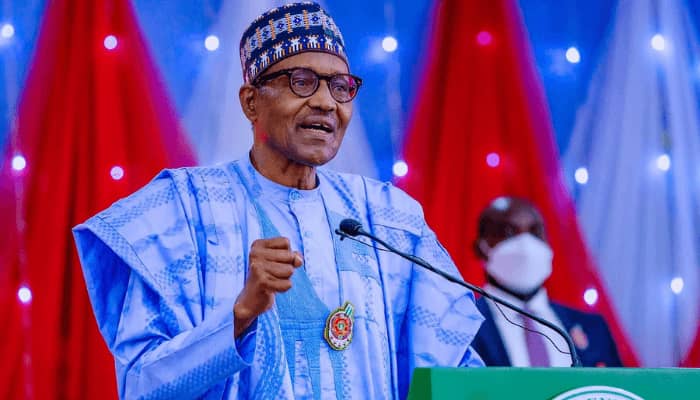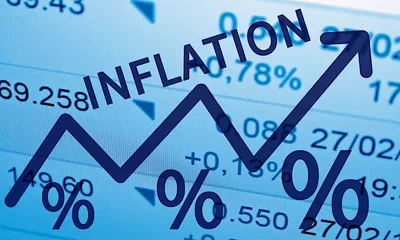Featured
UNESCO Global MIL Week: Misinformation has been used to aggravate conflicts, crisis – Buhari
Published
3 years agoon

By Odimmegwa Johnpeter, Abuja
The President of the Federal Republic of Nigeria, Muhammadu Buhari has said that misinformation has been used to aggravate conflicts and crisis, exacerbate insecurity, distort government efforts, fuel apprehension among the citizens and create distrust between the governments and the peoples. He stated this at the opening ceremony of the ongoing UNESCO Global Media and Information Literacy (MIL) Week 2022 Feature Conference and Youth Forum in Abuja. According to Buhari the hosting of this event is an indication of the growing symbiotic relationship between Nigeria and UNESCO in addressing the challenges facing the world. His words, “It also further amplifies our commitment as a Government and people to the continued implementation of the United Nations General Assembly’s Resolution on Media and Information Literacy which calls on countries around the world to develop and implement policies, actions and strategies related to the promotion of media and information literacy.
“It is pertinent to note that Nigeria played a leading role in giving birth to the Global Media and Information Literacy Week, when the country in 2013 hosted the first Global Forum for partnership on MIL tagged; “Promoting Media and Information Literacy as a means to cultural diversity”, culminating in the UNESCO MIL Alliance and ultimately to the Global MIL Week.
“The theme of this year’s Global MIL Week: “Nurturing Trust, a Media and Information Literacy Imperative,” focuses on the use of MIL to address a fundamental element of human and national development, which seems to be waning in most societies of the World. Trust is a key ingredient of democracy and good governance. Without trust, our avowed pledge to deliver on our promises as leaders will be impeded by the lack of commitment from the governed.
“As it is evident in our societies, getting reliable information is a constant battle. Media practitioners and stakeholders within thesector face the clear and present danger of misinformation. Misinformation has been used to aggravate conflicts and crisis, exacerbate insecurity, distort government efforts, fuel apprehension among the citizens and create distrust between the governments and their peoples.”
With regards to the use of social media which also underscores its potential to mold, shape and form opinion, the President note the following key statistics: 59% of the World population uses social media which represents 3 out of every 5 people on earth
• Average daily use is estimated to be about 2 hours 29 minutes which is approximately 149 minutes or 31 minutes shy of the equivalent of sitting and watching 2 consecutive football games of 90 minutes each.
The President further noted that over 70% of the people who use social media are 13 years and older.
Of the top 4 social media platforms 3 are interactive sites Facebook, Whatsapp and Instagram
He said, “Here in Nigeria with a population of about 220 million people, 37% is under 34 years and the country has about 100 million internet users, of which about 32 million are social media users
” Your Excellencies, distinguished ladies and gentlemen, having stated the above we fully recognize and are cognisant that Technology and social media offer us nearly limitless opportunities which must be harnessed especially by the youth to strengthen the foundations of our society and our common values.
“However, in confronting challenges of rising misinformation and hate speech we must also come together to defend freedom of speech, whilst upholding other values that we cherish. We must continue to work for a common standard that balances rights with responsibilities to keep the most vulnerable from harm and help strengthen and enrich our communities and most importantly strengthen trust and social cohesion by improving critical thinking competencies to adequately assess the quality of information received and shared which I believe is a key component of the MIL programme this week. The MIL has over the years proven to be a veritable tool in building the capacities of individuals and communities to learn, decipher, educate and effectively use data and information for the common good.
“In this regard, I congratulate UNESCO and all key stakeholders for their efforts in developing various initiatives and resources around the use of MIL to help in nurturing trust and countering mistrust. I also commend their efforts. in promoting the teaching and learning of MIL in formal and non-formal institutions, as well as the establishment of the Global MIL institutes.
“On our part as a government, we will continue to support policies and plans aimed at advocating the use of MIL to create a peaceful and cohesive society where trust and respect for each other become a norm. Already, our collaboration with UNESCO and other partners has stimulated the development and promotion of MIL policies at all levels of government as well as strategies aimed at helping citizens to learn and imbibe the skills of MIL. In furtherance of this mission, we encouraged the establishment of the MIL Coalition of Nigeria (MILCON) in 2017, a Coalition established to facilitate coordination of interventions on MIL in Nigeria and promote synergy among stakeholders”.
The Predicted further noted that these efforts have resulted in mainstreaming and domesticating the UNESCO MIL in the Curriculum of our Colleges of Education, by its inclusion in the General Studies Education component of the Nigeria Certificate in Education Minimum Standards curriculum, as a compulsory subject”. “In addition to this, information Science and Media studies, which is an adaptation of the MIL Curriculum, is now domiciled in our newly unbundled Mass Communication curriculum for all the Universities in Nigeria as recently unveiled by the National Universities Commission”, he added.
He also stated, “Your Excellences, distinguished ladies and gentlemen, I am informed that one of the major outcomes of this 11th Edition of theGlobal MIL Week Feature Conference and Youth Forum will be the Abuja Declaration. The Declaration, I understand, will centre on Global Financing for Media and Information Literacy, as an imperative to fight misinformation and build trust in our societies. I therefore call on all nations, multilateral and donor agencies as well as people of goodwill to support this genuine and just cause.”
Finally, as I look forward to the robust discussions and resolutions emanating from the 2022 edition of the Global Media and Information Literacy Week and the Youth Agenda Forum I wish to urge us all to jointly work towards the following key conference themes during and after this gathering to help foster sustainable peace and development across our world:
Promote media and information literacy as a viable development intervention to nurture trust, social protection, and solidarity.
Accelerate the pace of people’s access to media and information literacy in parallel to universal digital connectivity.
Promote media and information literacy as a key component for the exercise of fundamental human rights.
Popularise the new UNESCO resource Global Standards for Media and Information Literacy Curricula Development Guidelines.
Develop innovative ways to bridge inequalities in assessing media and information literacy
Develop Partnerships and provide funding to strengthen trust and solidarity in media and information literacy development at all levels of societies and,
Encourage and promote media and information literacy policy at organisational, institutional, national, and regional levels in ensuring equitable and ethical access to quality information”.
Earlier in his welcome address, the Minister of Information and Culture, Alhaji Lai Mohammed stated that the theme of the event which is “Nurturing Tust: Media and Information Literacy Imperative”, is aimed at equipping citizens with the ability to critically evaluate and wisely use information at their disposal. He also noted that this is very important in a digital era of information overload, because it allows the people to differentiate between what is true from what is false.
Trending

 Health7 days ago
Health7 days agoDeclassified CIA memo explored concealing mind-control drugs in vaccines

 Crime7 days ago
Crime7 days agoSenior police officers faces retirement after Disu’s appointment as acting IGP

 Comments and Issues1 week ago
Comments and Issues1 week ago20 Critical Fixes to Save Nigeria’s Democracy from Electoral Fraud

 Latest1 week ago
Latest1 week agoICPC yet to respond to El-Rufai’s bail request as arraignment date looms

 Comments and Issues1 week ago
Comments and Issues1 week agoGovernance Before Guns: Why Institutional Coherence Determines Security Outcomes

 Football1 week ago
Football1 week agoMartínez ruled out of Everton clash with calf injury

 Comments and Issues1 week ago
Comments and Issues1 week agoWho owns Abacha’s loot? Nigeria and the fight for the people’s money

 Comments and Issues1 week ago
Comments and Issues1 week agoShooting down inflation and rising poverty

